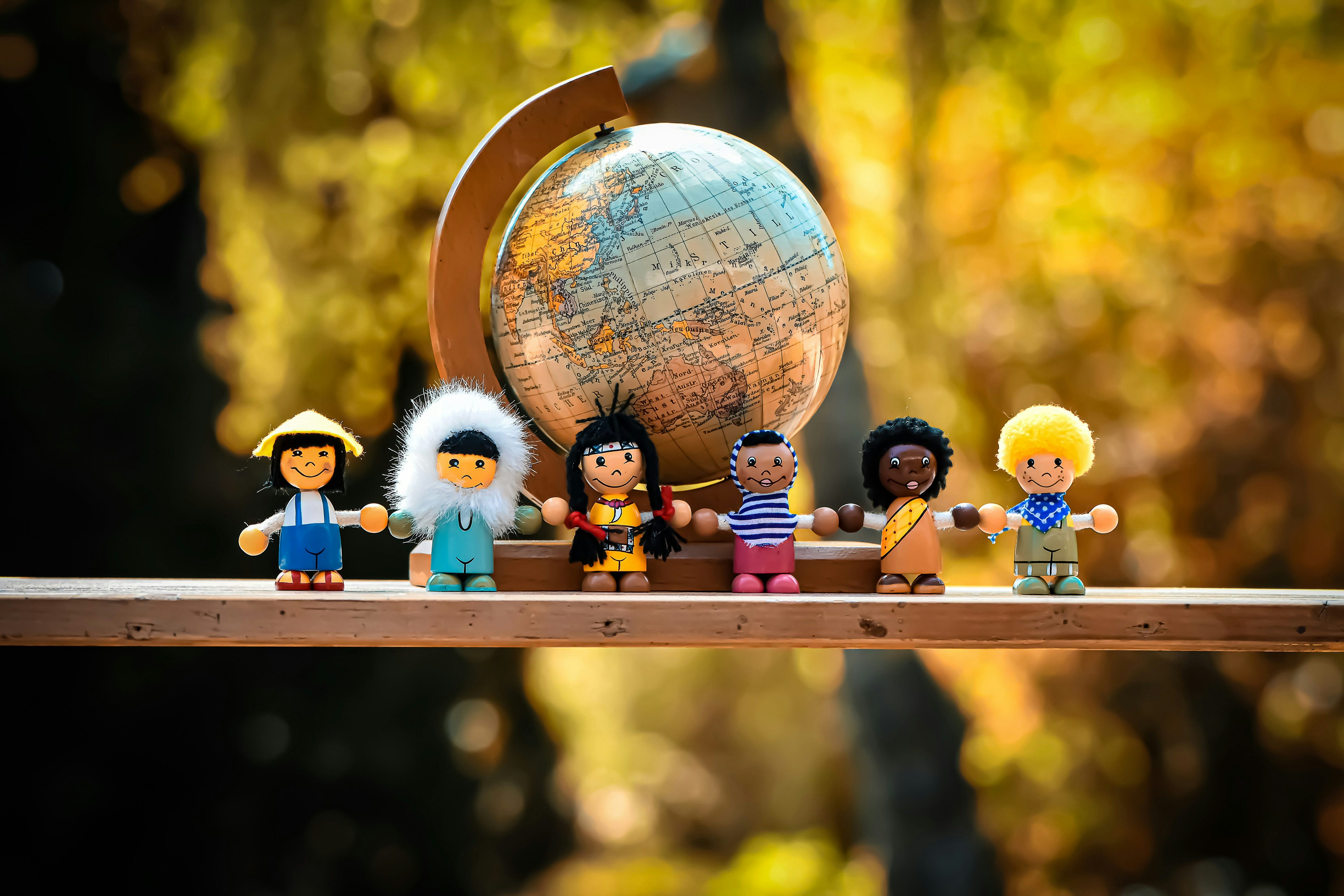The Paradox of Being Called a 'Foreigner' In A Melting-Pot Metropolis
About various ways we (nick)name migrants and the politics behind labels for foreigners.

Being called a legal alien struck me the first time I heard it when I lived in the US.
It is one step further than calling someone a foreigner. For most, an alien is something disturbing or strange. Something non-human, potentially dangerous. But at least the phrase is counterbalanced by adding legal in front of it, which makes one feel safe to be standing there in front of the US Homeland Security official. A description that surely made many a foreigner like me feel slightly unwelcome.
In Spain, French people are called gabacho. Some theories relate it to the word gavach in the Occitan language (a French dialect), meaning ‘the one who speaks badly’. French people crossing the Pyrenees mountains — the natural border between the two countries — into the Catalonia region of Spain spoke the local language badly. I’m not sure of the connotations of gabacho, but it does reinforce a distinction, a separation.
Borders, natural or political, and the lands surrounding them fascinate me.
Those are the original melting pots. The culture surrounding borders is like the fusion of two watercolors when you put a drop of water over them. Languages spoken on the two sides of one border (such as Catalan and Occitan around the Pyrenees mountain range), have beautiful similarities acquired in time, more than Spanish and French have, the two official national languages of the two countries. People’s customs are more alike than those of people further out from the borders. Roads and lives intersect despite the political separation.
Sudaca is a terribly derogatory term to address people from South American nationalities living in Spain. It’s the short version of the Spanish ‘sudamericano’, but the meaning is not benign. The xenophobic term had its peak in the 70s and 80s, due to massive migration into Spain’s capital, Madrid. But it still holds up to the present all over the country and beyond.
The politics of labeling foreigners with different names
Can you imagine a foreigner asking another one in a conversation:
Are you an immigrant here, like me?
or
Are you a gabacho too?
Typically, it’s locals who use these terms to refer to the “outsiders”, reinforcing barriers between people. Words like these are shortcuts for an entire perspective and attitude on certain nationalities.
Words carry meanings. Using certain words to define migrants influences our perception and signals where the power lies. Some words are so ingrained in our brains that we don’t even differentiate between the string of letters and the concept it speaks of. These are words like expat or immigrant. We not only immediately know what each refers to, but if I were to ask you to envision each word, you’d have an image in your mind in a split second — and the image between expat and immigrant would be quite different.
We already have other words to refer to people: by their name, by their physical features (she is blond, he is tall). Also by the psychological traits (she is kind, he is ambitious), by their occupation (he is a chef or a nurse). So why do we also define people by their geographical origin and motion?
Labeling is a shortcut to prejudice
The word foreign dates back to the 1400s and comes from the Latin forus, meaning outdoors. It refers to someone who is from another place, not from here. It probably made sense in the Middle Ages as poor peasants feared people outside their tight-knit, communities. A way to differentiate individuals ensured increased safety.
But the initial utility of the term left the door open for a step further towards comparing and denigrating outsiders.
Fast forward to the communist Romania of the 70s and 80s, where the prejudiced word by excellence was ţigan. Or tzigane, as it’s been adopted into English. Ţigan is a moniker to describe the ethnic group of the now-called Roma people, but in Romania it was used to mean ‘unwelcomed foreigner (of a darker skin color than the local majority, and a different cultural and religious identity)’. Here the origin of the Latin forus got mixed with racism into a dangerous cocktail.
Are you still a ‘foreigner’ in a melting-pot metropolis?
In London, there live 287 ethnic groups.
In Melbourne, there are residents from over 200 territories.
Barcelona is now home to people from 179 ethnicities. There is a reason such cities are called melting pots.
Can we still call the residents of these mega-cities foreigners? Residents from all over the world who make up the fiber and the identity of such cities? When the cities are not made up of homogenous single-ethnicity groups, what is the relevance of calling some of them foreigners?
In many melting-pot cities, even different neighborhoods look like different countries altogether. Can you be a resident of, say London, and at the same time a foreigner in one of its neighborhoods that may be culturally different than everything you’re familiar with?
There are no effective borders within the European Union. Members of the Union — nationals of 27 countries — can roam about wherever they want, settle wherever they please. In this context, what is the relevance of calling someone a foreigner in a globalized world?
I wonder if there is a way to create a multicultural society without the concept of being foreign. Or do we need this distinction between here and there, between inside and outside?
If nobody were a foreigner anymore, would it mean we’ve flattened the cultural diversity, customs and art, in a process to homogenize the world too much?
And if nobody is a foreigner, is everyone a foreigner?
In a burst of serendipity, two of my Substack friends — fellow migrants or expats or however we should call one another — also wrote recently about the same topic. Paul Moxness wrote a personal story of how he became first an immigrant and then an expat. And Nolan Yuma wrote about a bunch of other labels white people get around the world, from gweilo, and gringo, to gaijin, gora, and guiri. Check them out!








What an interesting read, Monica. There’s so much that could be said about the concept of being a foreigner and I guess when you’re in a place that is not the one you were born there’ll always be that perception from others, especially if there’s a hint of an accent when speaking the language. Back home, until very recently, if someone from a nearby town came to live to our town they were considered “forasteros” even though they came from 10 km away!!! This always puzzled me as in rural Spain there is a very strong connection between people and the land. In London is quite fascinating how you can forget you’re a foreigner until you are among British people, who tend to remark your accent, where you are from and things other foreigners usually never mention that much. So yes, you can be both integrated in the city and blend in its diversity but equally made feel that you’re not really from here the moment you open your mouth 😂
Well this was timely! I'm a Brit living in the US now with dual citizenship. I've been here almost 40 years and I must confess I can go weeks without thinking about it. Of course, Britain is one of the favored countries, and not one of Trump's "shithole" countries.
I recently returned from a trip to the Santa Fe area in New Mexico, where Spanish is almost as common as English, cars with Mexican license plates are seen on the street, and there's a large Native American presence. The different ethnic groups seem to mostly get along. There seems to be a general awareness that the Native Americans have been there thousands of years, the Spanish hundreds (NM was part of Mexico longer then it's been part of the US), and white folks just a couple of hundred years. White people are the immigrants. While all of that is true thoughout the Southwest, and as far as Native Americans are concerned, throughout the country, I don't see it recognized statewide anywhere else except Hawaii. May we all become more aware.